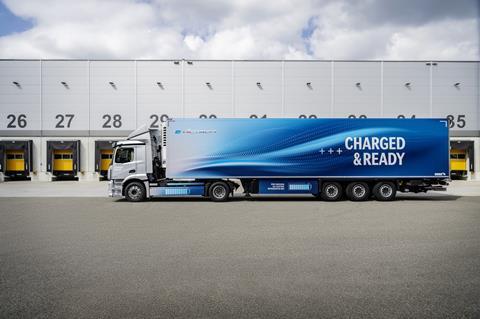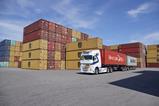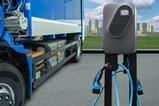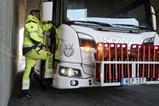Mercedes-Benz Trucks has set its suppliers and contractors a challenging target of electrifying 100% of the delivery traffic to its main truck plant by the end of 2026. The truck builder is working with logistics service providers and freight forwarders that serve the largest factory on a regular basis, to incorporate more electrically powered trucks into their fleets.

Several freight forwarders will participate in the pilot phase, which is set to begin in 2023. The first totally electric deliveries to the Mercedes-Benz plant in Wörth, as well as those from sister facilities, will take place next year. During the pilot phase, electric Mercedes-Benz eActros 300 tractors will be used. The eActros LongHaul and additional models will be added later.
“Electromobility in the transport industry is already working today in numerous application fields,” says Karin Rådström, CEO Mercedes-Benz Trucks. “We want to drive the transformation of our industry forward quickly, which is why we are active on all levels of electrification. Therefore we are going beyond vehicle development, manufacturing and providing accompanying services. We are working intensively on the electrification of our own direct supply chains. There is great potential here, as well as great interest among our partners, whom we are strongly supporting on this path.”
The establishment of a charging infrastructure at the Wörth location is an essential component of Mercedes-Benz Trucks’ future inbound logistics concept for emission-free delivery traffic. Approximately 50 charging columns, including megawatt charging stations for high-performance battery charging, are planned for critical delivery traffic locations near the Wörth facility.
The eActros LongHaul, which is crucial for the long-haul market, is set to enter series production in 2024. The series-production truck will be capable of high-performance, or so-called megawatt charging, and will have a range of roughly 500 kilometres on a single battery charge. The Mercedes-Benz eActros 300, which was recently introduced as a semitrailer tractor type for flexible heavy distribution transport, will go into series production next year.
Commercial vehicles that are CO2-neutral in driving mode are predicted to account for up to 60% of Daimler Truck sales in EU30 countries as early as 2030.


















